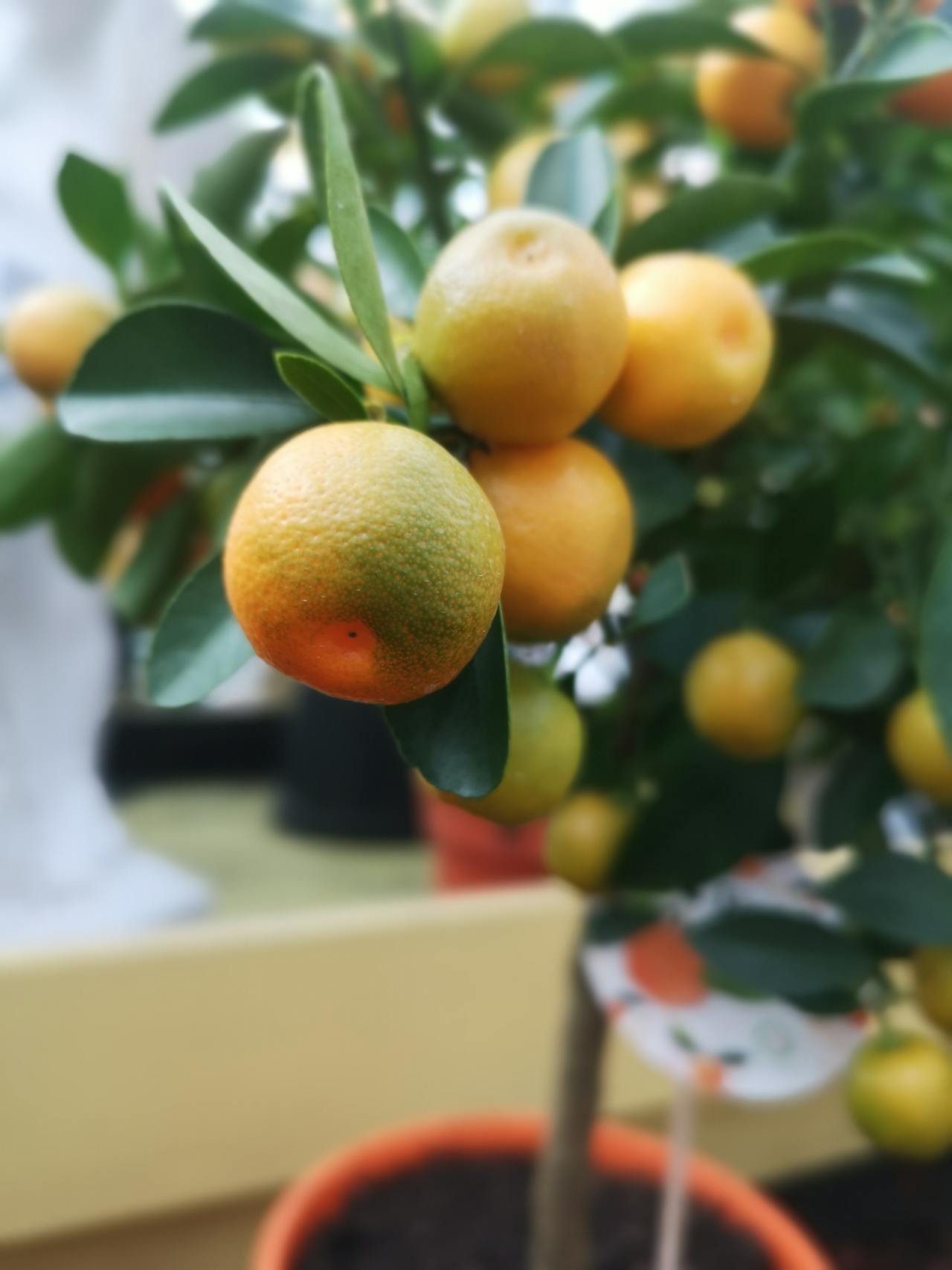Calamondin, a small citrus fruit often overlooked in the world of nutrition, is gaining attention for its remarkable health benefits. Native to Southeast Asia, this vibrant fruit boasts a tangy flavor that adds a unique twist to culinary creations. Rich in vitamins and antioxidants, calamondin not only enhances the taste of dishes but also supports overall health. Moreover, its versatile nature allows it to be used in beverages, marinades, and desserts, making it a delightful addition to any kitchen. However, like any food, calamondin comes with potential side effects that are essential to consider. In this blog post, we will explore the nutritional profile of calamondin, delve into its numerous health benefits, and discuss any possible adverse effects, empowering you to make informed choices about this citrus gem.
What is Calamondin?
Calamondin, also known as Citrus mitis, Citrus microcarpa, or kalamansi in the Philippines. In some regions, it may also be referred to as “calamansi lime” or “calamansi lemon.” Calamondin is a small, round citrus fruit that belongs to the Rutaceae family. It is primarily native to Southeast Asia but has gained popularity in various regions around the world, particularly in the Philippines, where it is often referred to as “kalamansi.” The fruit is typically bright orange or green when ripe, and it has a thin, edible skin.
Not only does calamondin have a unique, tangy flavor, but it also offers a refreshing burst of acidity that can enhance a variety of dishes. This fruit is commonly used in marinades, sauces, and beverages, making it a versatile ingredient in both traditional and modern cuisine. Furthermore, calamansi is rich in vitamins, particularly vitamin C, which contributes to its numerous health benefits. As you explore the culinary and nutritional aspects of this fascinating fruit, you will discover why calamondin is cherished in many cultures.
Calamondin Nutrition
The nutritional profile per 100 grams of calamondin:
- Calories: 37 kcal
- Protein: 0.8 g
- Carbohydrates: 9.3 g
- Sugars: 1.5 g
- Fiber: 1.9 g
- Fat: 0.1 g
Vitamins and Minerals
- Vitamin C: 27 mg (about 45% of the daily recommended intake)
- Vitamin A: 200 IU (4% of daily recommended intake)
- Calcium: 45 mg (4% of daily recommended intake)
- Potassium: 180 mg (5% of daily recommended intake)
- Iron: 0.1 mg
The fruit is mostly consumed in small amounts due to its intense sour taste but offers a concentrated source of vitamin C and other antioxidants.
10 Incredible Health Benefits of Eating Calamondin Everyday
Calamondin, also known as calamansi, is a citrus fruit that is native to Southeast Asia. It is a cross between a mandarin orange and a kumquat, and has a unique tangy flavor. While it is commonly used in cooking and as a flavoring agent, calamansi also offers numerous health benefits. In this blog post, we will explore 10 health benefits of calamondin with original references attached.
1. Rich in Vitamin C
Calamondin is a rich source of vitamin C, which is a powerful antioxidant that helps boost immunity and fight off infections. In fact, a 100-gram serving of calamansi provides 50% of the recommended daily intake of vitamin C. This makes it a great fruit to add to your diet during cold and flu season.
2. Promotes Healthy Digestion
Calamondin contains high levels of dietary fiber, which is essential for maintaining a healthy digestive system. Fiber helps regulate bowel movements and can prevent constipation. Additionally, the fruit’s acidic nature can aid in digestion by stimulating the digestive juices in the stomach.
3. Supports Weight Loss
Due to its high fiber content, kalamansi can also aid in weight loss. Fiber helps you feel full for longer, reducing the likelihood of overeating. A study published in the Journal of Nutrition and Metabolism found that individuals who consumed high amounts of fiber had lower body weight and body fat percentage.
4. Lowers Cholesterol Levels
Consuming calamondin regularly may help lower cholesterol levels, which can reduce the risk of heart disease. A study published in the Journal of the American College of Nutrition found that participants who consumed calamondin juice daily for four weeks had significantly lower total cholesterol and LDL cholesterol levels.
5. Regulates Blood Sugar
Calamondin has a low glycemic index, meaning it does not cause a rapid spike in blood sugar levels. This makes it a suitable fruit for people with diabetes. Furthermore, the antioxidant and anti-inflammatory properties of calamondin may help improve insulin sensitivity.
6. Boosts Skin Health
The high vitamin C content in calamansi makes it a beneficial fruit for skin health. Vitamin C is a vital nutrient for collagen production, which helps maintain the skin’s elasticity and firmness. It also has antioxidant properties that can protect the skin from free radical damage and help reduce signs of aging.
7. Prevents Anemia
Anemia is a condition caused by a deficiency of iron in the body, which can lead to fatigue and weakness. Calamansi is a good source of iron and can help prevent anemia. It also contains vitamin C, which aids in the absorption of iron.
8. Supports Liver Health
Studies have shown that calamansi has hepatoprotective properties, meaning it can help protect and support liver health. A study published in the European Journal of Scientific Research found that calamondin extract had a protective effect on liver cells.
9. Alleviates Cold and Cough Symptoms
The high vitamin C content in calamondin can also help alleviate cold and cough symptoms. Vitamin C is known to boost the immune system and reduce the severity of cold and flu symptoms. Additionally, the fruit’s acidic nature can help soothe a sore throat.
10. Natural Antibacterial and Antifungal Properties
Calamondin has natural antibacterial and antifungal properties, making it an effective natural remedy for various infections. A study published in the Journal of Medicinal Food found that calamondin extract inhibited the growth of common bacteria and fungi.
In conclusion, calamansi offers numerous health benefits, from boosting immunity to promoting healthy skin and supporting liver health. So the next time you come across this citrus fruit, make sure to include it in your diet for its many health benefits.
Potential Side Effects of Eating Calamondin
Calamondin, also known as calamansi or Philippine lime, is a small citrus fruit that is becoming increasingly popular in the culinary world. Its tangy and slightly sweet flavor makes it a versatile ingredient in both savory and sweet dishes. However, like any other food, too much of it can have negative effects on our bodies. In this blog post, we will explore 6 potential side effects of eating calamondin.
1. Dental Problems
Due to its high acidity, regular consumption of calamondin may lead to dental problems. The acidic nature of the fruit can erode the enamel on our teeth, making them more susceptible to cavities and tooth decay. It is important to rinse your mouth with water after consuming kalamansi or to consume it in moderation to avoid damaging your teeth.
2. Gastrointestinal Issues
Calamondin is known to have a laxative effect when consumed in excess. This is because of the high levels of citric acid present in the fruit. Overconsumption of calamondin can lead to stomach pain, bloating, and diarrhea. It is best to consume the fruit in moderation and avoid consuming it on an empty stomach.
3. Allergic Reactions
Some people may be allergic to calamondin, especially those who are allergic to other citrus fruits. The symptoms of an allergic reaction may include itching, rashes, hives, and even anaphylaxis in severe cases. If you experience any of these symptoms after consuming calamondin, seek medical attention immediately.
4. Interference with Medications
Calamondin contains high levels of vitamin C, which can interact with certain medications such as statins, blood thinners, and chemotherapy drugs. This can either decrease the effectiveness of the medication or increase its side effects. If you are taking any medications, it is best to consult with your doctor before consuming calamondin.
5. Skin Irritation
Topical application of calamondin juice or its essential oil may cause skin irritation in some individuals. This is especially true for those with sensitive skin. It is important to do a patch test before using kalamansi on your skin and to dilute it with a carrier oil to avoid any adverse reactions.
6. Pregnancy and Breastfeeding
Pregnant and breastfeeding women should consume calamondin in moderation. The fruit is known to have properties that can stimulate contractions, which can be harmful during pregnancy. It is best to consult with your doctor before consuming kalamansi if you are pregnant or breastfeeding.
In conclusion, while calamondin may offer numerous health benefits, it is important to consume it in moderation to avoid any potential side effects. If you experience any adverse reactions after consuming calamondin, it is best to seek medical advice. Remember, everything is good in moderation.
Reference
- Phytochemicals, Bioactive Properties and Commercial Potential of Calamondin (Citrofortunella microcarpa) Fruits: A Review. https://www.ncbi.nlm.nih.gov/pmc/articles/PMC10146261/
- Calamansi Juice: Benefits, Recipe, and Side Effects | Organic Facts. https://www.organicfacts.net/calamansi-juice.html
- Calories in Calamondin and Nutrition Facts – FatSecret https://www.fatsecret.com/calories-nutrition/generic/calamondin-raw
- Calamondin Nutrition – Prospre. https://www.prospre.io/ingredients/calamondin-275234.
- 8 Benefits Of Calamansi Juice – A Tasty Citrus Fruit – Nawon https://nawon.com.vn/calamansi-juice-8-benefits-of-this-tasty-citrus-fruit/
- Calamansi – Health Benefits, Uses and Important Facts https://www.nutritionkingzexotics.co.uk/products/calamansi-lime.
- Calamansi Lime (Calamondin Lime) | Nutrition Kingz Exotics Ltd.





